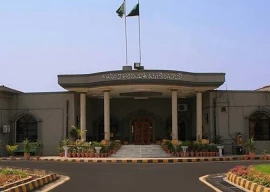
Al-Qaeda Chief Ayman-al-Zawahiri was killed in a CIA drone strike in Kabul on 31 July. The 71-year-old eye surgeon remained head of the terrorist outfit since Osama bin Laden was taken out in a secret raid in Abbottabad in May 2011. Unlike Bin Laden, the killing of Zawahiri was more of a symbolic blow to al-Qaeda. The group accused of being responsible for 9/11 attacks in the US was no longer posing the same level of threat as it did in the past. Zawahiri was more of a figurehead as al-Qaeda franchises managed their day to day operations on their own. Nevertheless, it was a major achievement as far as the US was concerned as the hunt for a man having a $25 million bounty on his head was finally over.
More than the blow to al-Qaeda, the killing of Zawahiri on Afghan soil was a setback to the Afghan Taliban. The CIA drone strike was embarrassing for the Taliban because it contradicted claims of the group that it no longer backed or harboured al-Qaeda or their leadership. The fact that Zawahiri was living in an upscale neighborhood not far from the presidential palace corroborated the recent report by the UNSC monitoring group, which revealed that al-Qaeda was regaining control under Taliban rule. Many senior al-Qaeda leaders were in advisory rule in the interim Taliban government.
This was the case despite the fact that one of the key conditions of the Doha agreement signed in February 2020 was that the Afghan Taliban would sever its ties with al-Qaeda and never allow Afghan soil to be used again by these transnational terrorist groups. Following the killing of Zawahiri, the US accused the Taliban for violating the Doha accord. The situation was awkward for the Taliban as it took four days to formally respond to the US drone strike. In reaction, the Taliban expressed ignorance about the presence of Zawahiri in Kabul and questioned whether the person killed in the drone strike was indeed the al-Qaeda Chief. This reaction was understandable because acknowledging the presence of Zawahiri in Kabul and his death would mean admitting the presence of al-Qaeda. Nevertheless, despite denials by the Taliban, the development will have huge implications for Kabul’s de facto rulers.
The immediate fallout is that Taliban getting international recognition is now out of question in the foreseeable future. Before the drone strike, the US was talking to the Taliban on unfreezing the $7 billion assets Washington withheld after the fall of Kabul. But the chances of the Taliban government getting its hands on these foreign assets are grim as ever. The killing of Zawahiri will further create divisions within the Taliban ranks. There have always been two groups with the Taliban. One that is in favour of cutting ties to all terrorist groups and honouring the commitments made with the international community. The other side takes a more hardline view and is in favour of preserving the decades old contacts and relationship with groups like al-Qaeda. The group that favours maintaining contacts with al-Qaeda cites the example of the founder of the Taliban movement Mullah Muhammad Omar, who despite US pressure never handed over al-Qaeda Chief Osama Bin Laden to Washington.
The killing of Zawahiri will also have ramifications for the region, particularly for Pakistan. Since the Taliban returned to power, Islamabad has been one of the strongest advocates of the Taliban regime getting international legitimacy. The premise of Pakistan’s support to the Taliban stems from the fact that the group controls majority of Afghanistan and the world has no other option but to work with them. Other regional countries including China, Russia and Iran have taken a more pragmatic view and remained engaged with the Taliban. But the al-Qaeda chief’s killing may force these countries to revisit their strategy.
Published in The Express Tribune, August 8th, 2022.
Like Opinion & Editorial on Facebook, follow @ETOpEd on Twitter to receive all updates on all our daily pieces.




1725369967-0/Untitled-design-(10)1725369967-0-165x106.webp)















COMMENTS (3)
Comments are moderated and generally will be posted if they are on-topic and not abusive.
For more information, please see our Comments FAQ